In Michigan, gun debate and governor's race collide
Michigan Attorney General Bill Schuette was endorsed by Trump last September.
— -- The debate over gun control could play out in an especially stark way in Michigan — a state with consistently high rates of gun ownership and adults with concealed weapon permits and where the leading Republican gubernatorial candidate called the President's idea to arm some teachers and school personnel an option that should be on the table.
Michigan Attorney General and GOP gubernatorial candidate Bill Schuette signaled support for Trump’s recent calls to arm some teachers and other school officials with firearms as a way to deter possible mass shooters in the wake of the deadly school shooting in Parkland, Florida.
“That is an option that ought to be considered,” Schuette said in an interview with ABC News last week, “If we have to work on having security officers in schools and or teachers that are specially trained, specially equipped, that's an option we ought to review.”
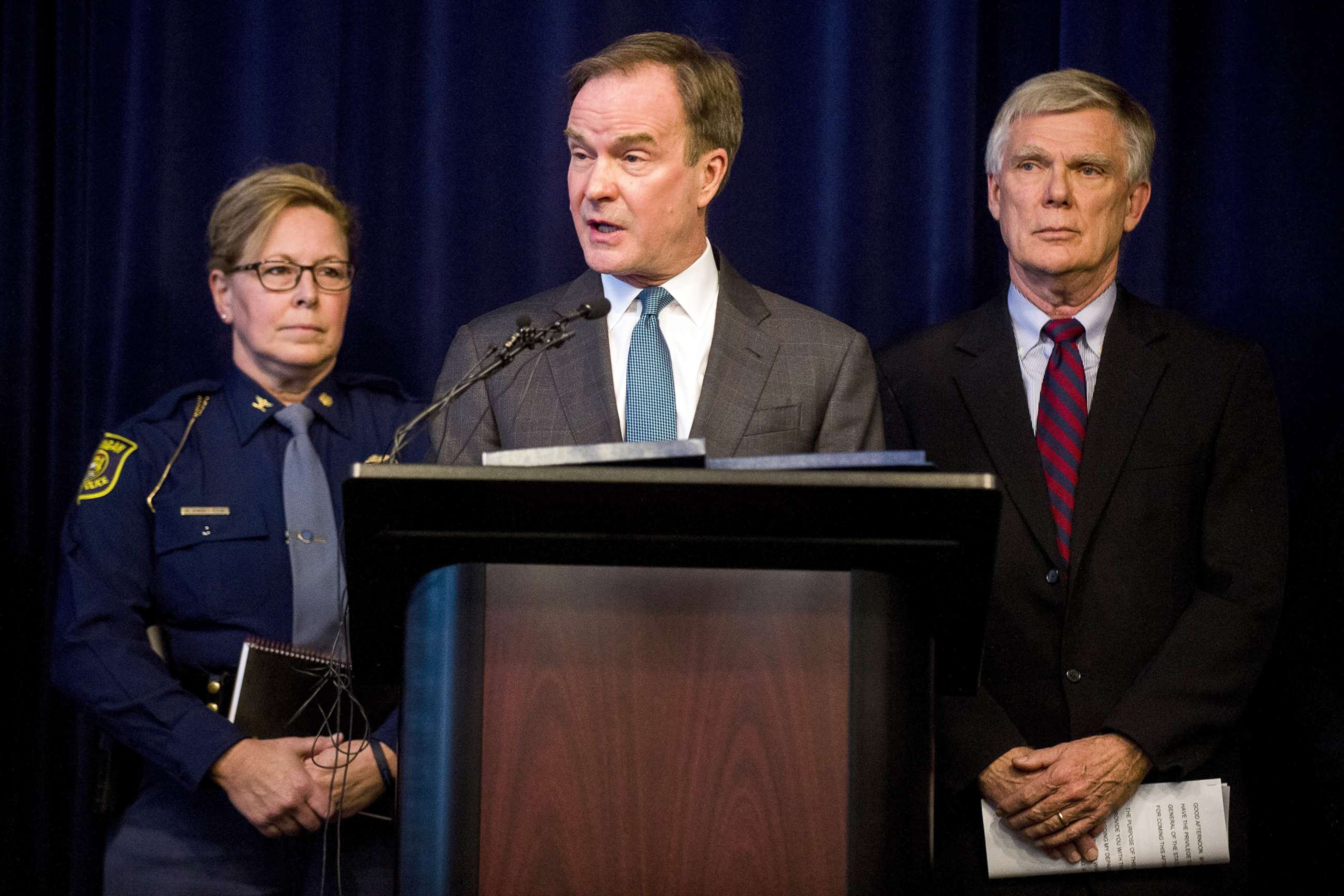
But support over this stance could depend on where in Michigan a voter lives.
Data provided by the Michigan State Police showed that Michigan had 621,327 active concealed carry permits as of February 1, 2018, which amounts to roughly 8 percent of the state's adult population, according to an analysis by the local news outlet Michigan Live.
In more rural counties in the northern part of the state, the percentage of the adult population with a hunting license is higher than 20 percent.
In contrast the state's more urban areas like Detroit, a city that since 2006 has only seen one year where non-fatal shooting totaled below 1,000 according to data from the Detroit Police Department, see a much lower rate of concealed carry permits and hunting licenses.
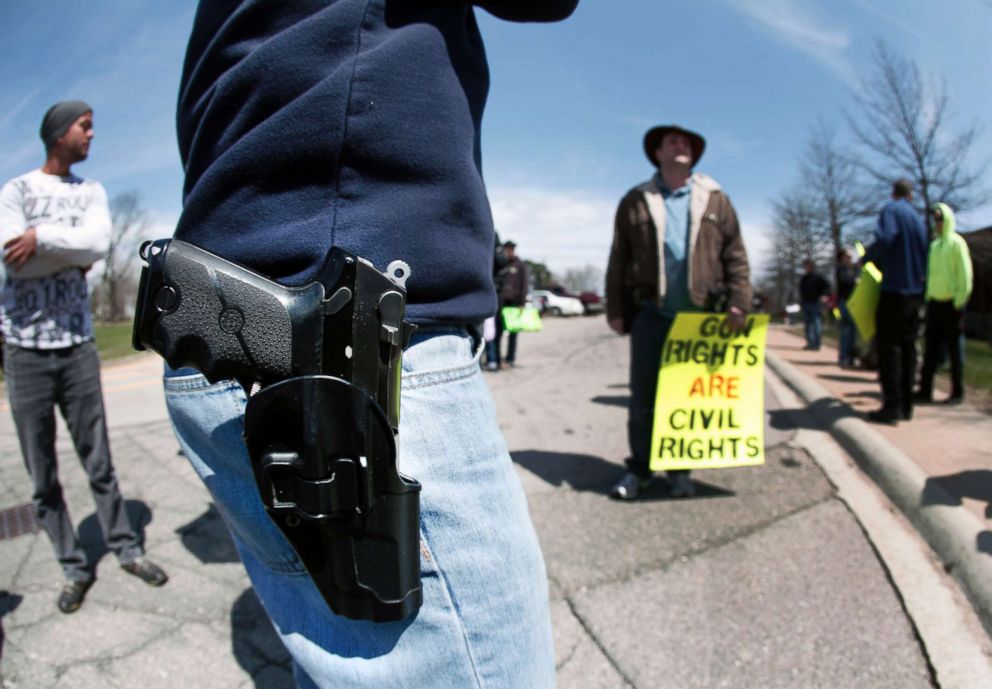
Just 2 percent of the adult population in Wayne County, which includes the city of Detroit, has a registered hunting license.
In Ontonagon County, tucked in the far northwest corner of the state, 28 percent of the adult population has a registered hunting license.
"Michigan is a pretty diverse state in terms of comparing the Upper Peninsula to metro Detroit," Jennifer Carlson, a professor at the University of Arizona who has done extensive research on gun politics in Michigan and is the author of "Citizen-Protectors: The Everyday Politics of Guns in an Age of Decline" told ABC News in a phone interview. "What is really fascinating about Michigan is that gun politics really comes down to the people that own guns and see guns as a meaningful part of their lives."
The deep divide in gun ownership in Michigan reflects a nation still deeply divided on a way forward to decrease mass shooting and gun violence. While some gun owners in the state may support laws to keep guns out of the hands of criminals and the mentally ill, there is still often a divide on how to actually implement policies to achieve that goal.
"In my conversations with gun carriers, overwhelmingly people support keeping guns out of the hands the ‘wrong hands," Carlson said, "But that raises a whole different debate in terms of how do you decide who is a good guy with a gun versus a bad guy with a gun. That’s something that I think is really interesting about Michigan and I would argue is actually indicative about how Americans feel about guns."
Schuette's Republican opponents, Michigan Lt. Gov. Brian Calley and state senator Patrick Colbeck, have both positioned themselves as strong defenders of the Second Amendment, with Colbeck supporting some trained officials to carry concealed weapons in schools.
"Laws restricting guns serve to empower people with criminal intent," Colbeck's Communications Director AnneMarie Schieber Dykstra wrote in an e-mail to ABC News, "He believes a better approach is to protect students. He supports concealed pistol license holders to carry guns in schools and empowering school boards to build infrastructure to protect students such as safe rooms, security guards and metal detectors."
Calley's campaign did not respond to a request for comment on the gun control debate when asked by ABC News, but his website says he "supports the right to bear arms as guaranteed by the 2nd amendment."
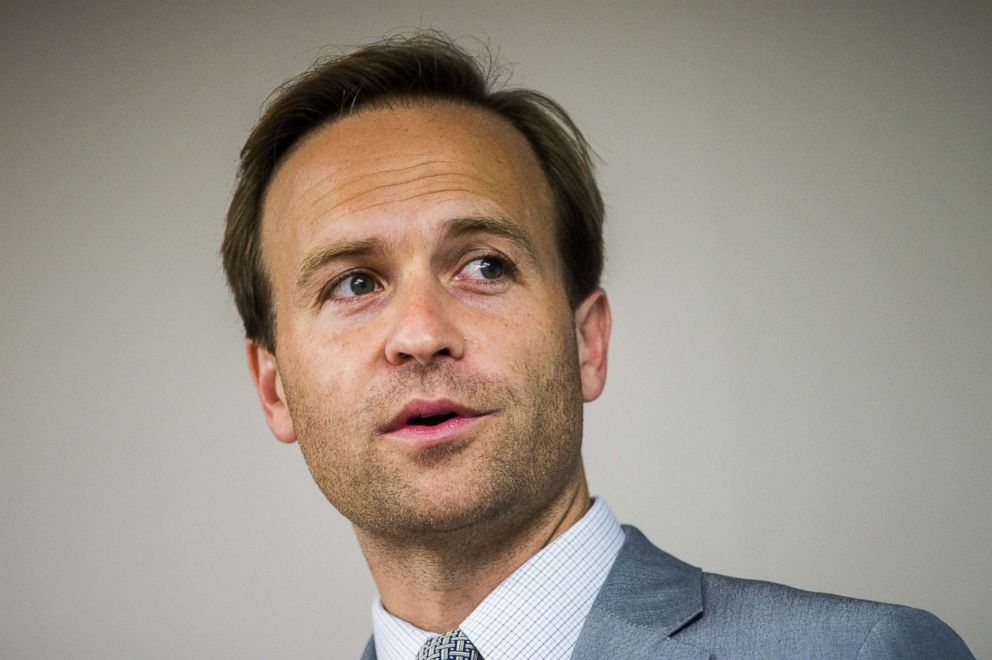
On the Democratic side, all of the major candidates have called for strengthening the background check system for gun purchases, and banning "assault weapons" like the firearm used in the Parkland shooting.
"A weapon of war does not belong in the hands of civilians," Shri Thandear, one of the candidates vying for the Democratic nomination, wrote in a statement provided to ABC News.
Gretchen Whitmer, a former Democratic leader in the Michigan state Senate who is the front-runner in the Democratic primary, opposed a bill passed by the Michigan legislature that allows people to carry concealed guns in schools, bars, preschools, churches and other places, and spoke about a need to "pass common sense gun laws" to keep guns out of the hands of criminals.
Whitmer has also spoken about the need to reform the mental health system in America if progress is going to be made in curtailing gun violence.
"It means addressing mental illness in this country so that anyone who is struggling can get help, and when someone's friends or family notice something is going on and they report it, we recognize those warning signs and we have the tools to take action," Whitmer said in a speech last December at a remembrance vigil for the 2012 Sandy Hook Elementary School shooting.
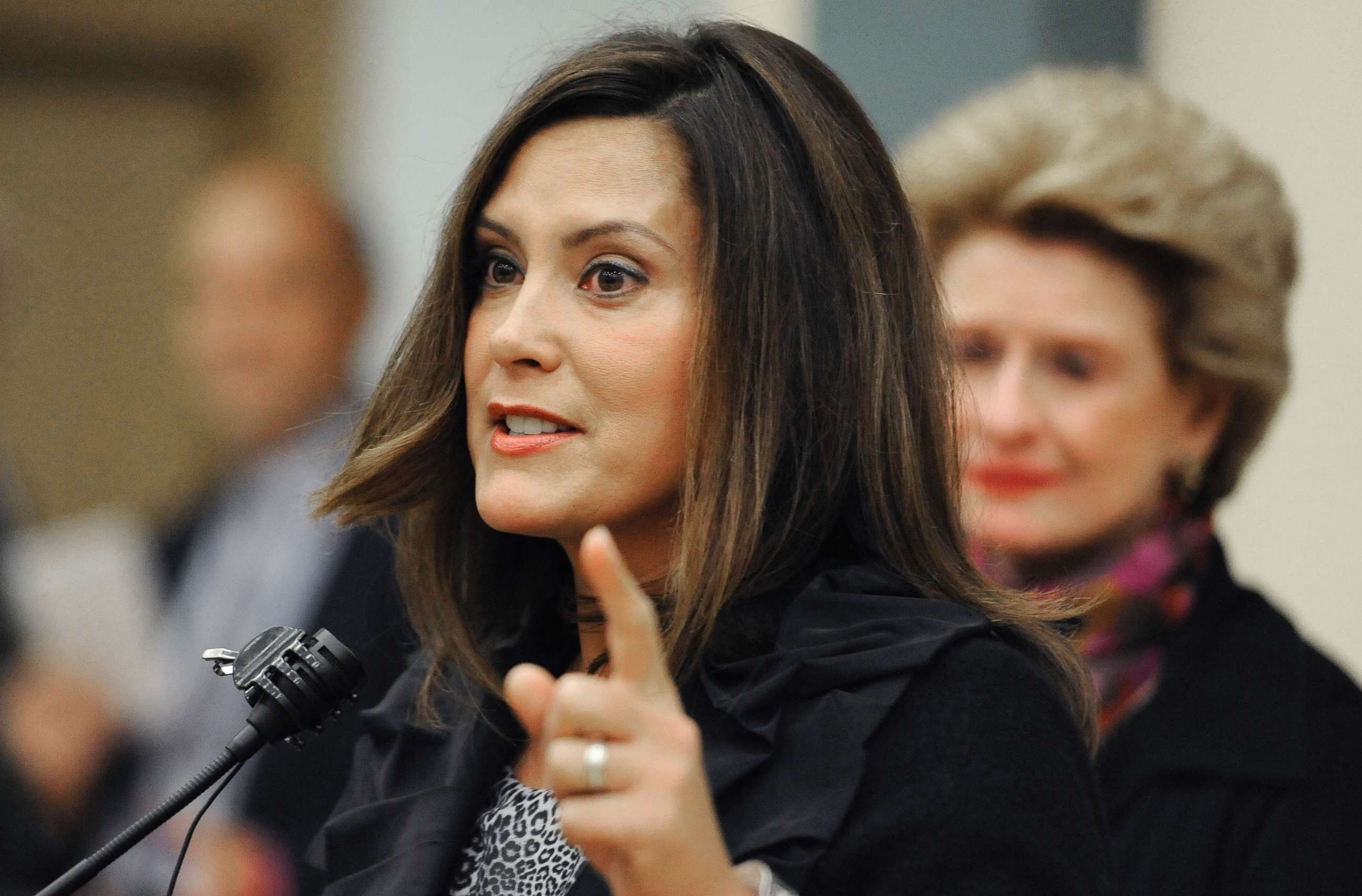
Jenna Bednar, a political science professor at the University of Michigan, said that both parties are cognizant of the pitfalls of making guns a central issue in a state where the issue is so divisive.
"The Republicans, led by Schuette, have laid out a steady history of removing barriers to firearm purchase and use, so it would be difficult at this juncture for any candidate to pivot and support gun control," Bednar told ABC News, but cautioned that while Republicans may avoid the issue, the eventual Democratic nominee cannot alienate voters heading into the general election in November.
"Should [Whitmer] make it to the general, she'll need to attract the support of moderate Republican women," Bednar said, "Support of moderate gun control, framed as school safety, could be a winning position for her; probably necessary in the primaries, and a useful way to distinguish herself from Schuette in the general election."
Schuette, who was endorsed by President Trump in a tweet last September, said that increased security at schools, a greater focus on reforming the mental health system in America, and a discussion on the “coarsening of society” all need to be part of the national conversation on gun control.
“Too many video games with violence instead of having a conversation about our culture,” Schuette said, “Our airports are secure, why can't we do something to protect and enhance the security of our schools?”
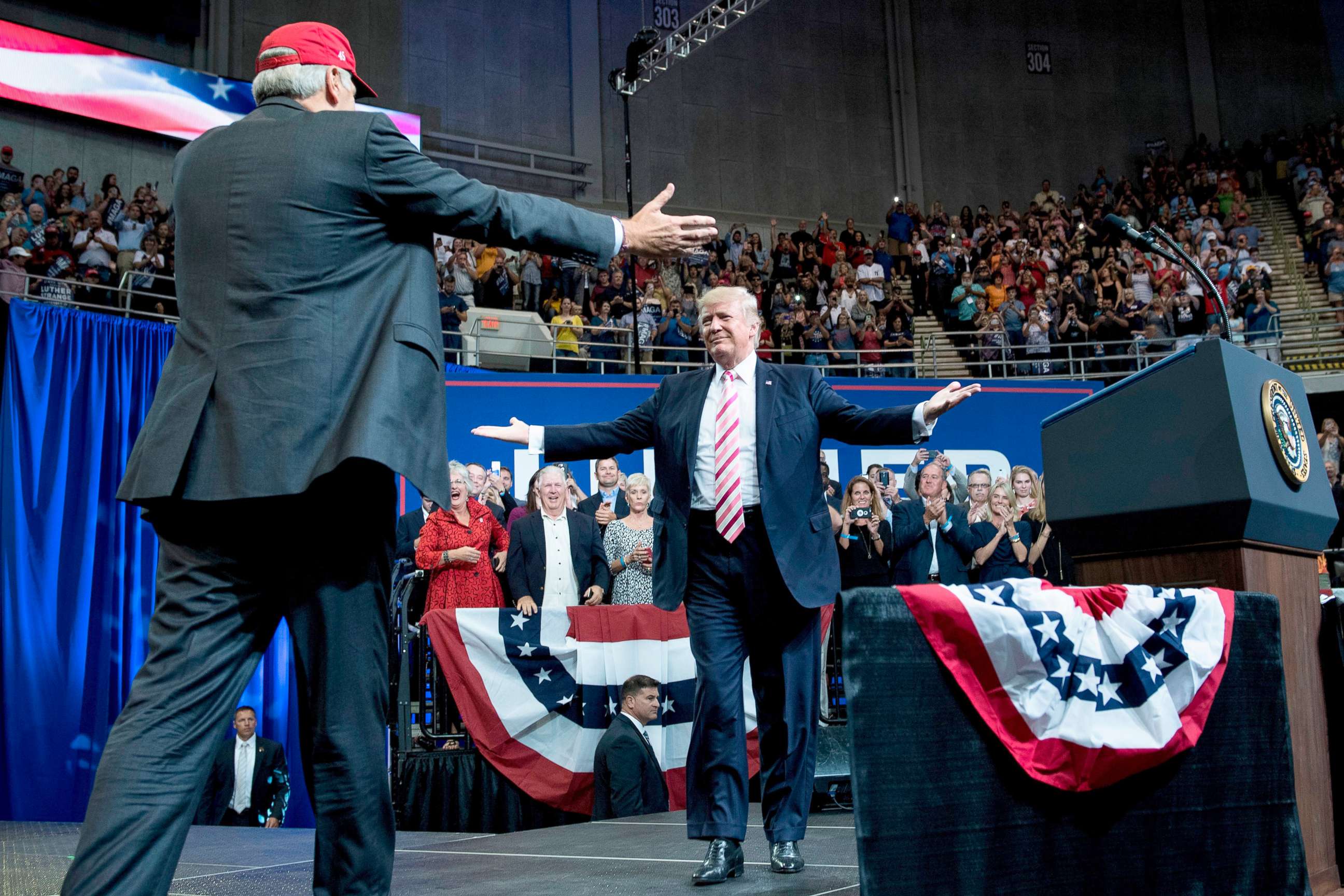
Primary elections in Michigan will be held on August 7, 2018.




